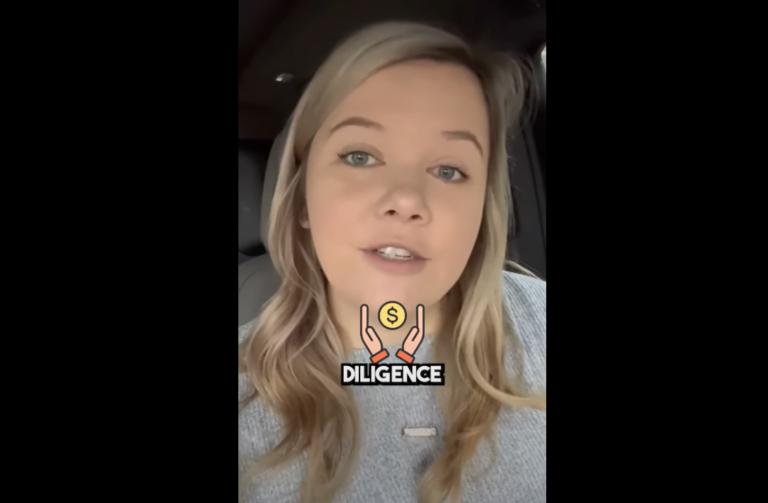Due Diligence Fee in North Carolina: What Buyers and Sellers Need to Know
When you’re diving into a real estate transaction in North Carolina, one term that comes up early—and often—is the due diligence fee. If you’re a first-time buyer or even a seasoned seller, understanding how the due diligence period, earnest money, and other contract timelines work is essential to a smooth closing.
Let’s break down what this fee is, why it matters, how it’s different from earnest money, and what both buyers and sellers need to know when making or accepting an offer to purchase.
What Is a Due Diligence Fee?
In North Carolina, the due diligence fee is paid by the buyer directly to the seller at the time the purchase and contract form is signed. This fee buys the buyer a specific period—known as the due diligence period—to fully evaluate the property.
This includes inspections, appraisals, surveys, title research, and consultations with real estate attorneys. During this period, the buyer decides whether to move forward with the deal or terminate the contract—for any reason or no reason at all.
💡 The due diligence fee is non-refundable unless the seller breaches the contract. It is, however, typically credited back to the buyer at closing if the deal goes through.
Why Is the Due Diligence Fee Paid Directly to the Seller?
The due diligence fee compensates the seller for taking the property off the market during the due diligence period. Once the contract is signed, the seller is restricted from showing the home or entertaining new offers.
Think of it as a financial sign of good faith. While it’s not mandatory in every state, in North Carolina, it’s a common and expected part of the real estate transaction process.
The Difference Between Due Diligence and Earnest Money
It’s easy to confuse due diligence and earnest money, but they serve different purposes—and are handled differently:
-
Due Diligence Fee: Paid directly to the seller, non-refundable, gives the buyer time to investigate the home.
-
Earnest Money: Paid to a third party (usually held in escrow by a law firm or real estate office), and may be refundable depending on the terms of the contract.
Both amounts are typically applied to the buyer’s closing costs at settlement if the deal is finalized.
To learn more about how earnest money works in North Carolina, check out this breakdown from the North Carolina Real Estate Commission.
What Happens During the Due Diligence Period?
The due diligence process is the buyer’s opportunity to conduct a full investigation into the property. During this time, the buyer may:
-
Hire a licensed home inspector
-
Order a property survey
-
Get a title search via a real estate attorney
-
Consult lenders and finalize financing
-
Review HOA documents and zoning information
-
Negotiate repairs or credits
If major issues come up—like structural damage, undisclosed easements, or financing problems—the buyer can terminate the contract before the due diligence deadline without risking their earnest money.
How Much Is a Typical Due Diligence Fee in North Carolina?
There is no fixed amount, but it often ranges from a few hundred to several thousand dollars, depending on the price of the home and the competitiveness of the market. In multiple-offer situations, a strong due diligence fee can make an offer more attractive to a seller.
Example: For a $300,000 home, it’s not uncommon to see a due diligence fee of $500–$2,000, with an additional $1,000–$3,000 in earnest money and due diligence combined.
Your real estate agent can guide you on what’s typical for your area, whether you’re buying in Lexington, High Point, Kernersville, or any surrounding Triad communities.
Can the Buyer Get the Due Diligence Fee Back?
In almost all cases, no. The diligence fee is paid directly to the seller and is non-refundable unless:
-
The seller breaches the contract
-
The deal fails because of seller fraud or failure to deliver required disclosures
Even if a home inspection reveals major problems, the buyer can back out during the diligence period, but the fee stays with the seller. That’s why it’s so important to be confident in your decision and have trusted professionals guiding you.
Can the Seller Keep the Fee If the Buyer Walks Away?
Yes. If the buyer changes their mind for any reason—bad inspection, financing issues, or even cold feet—and terminates the contract before the due diligence deadline, the seller keeps the money and due diligence fee.
This compensates the seller for the time the home was off the market and unavailable to other buyers.
What Role Does a Real Estate Agent Play?
Your real estate agent is crucial during the negotiation and execution of the due diligence process. They help:
-
Draft the Offer to Purchase and Contract
-
Negotiate the due diligence and earnest money amounts
-
Schedule inspections and appraisals
-
Monitor timelines and protect your rights
-
Coordinate with real estate attorneys to ensure compliance
If you’re considering buying or selling a home in the Triad, connect with one of our local experts at Mantle Realty who can walk you through the process step-by-step.
Final Thoughts: Understanding Due Diligence in North Carolina
The due diligence fee is more than just a line item on a contract—it’s a key part of every real estate transaction in North Carolina. For buyers, it secures the time and space needed to make a smart decision. For sellers, it offers reassurance that the buyer is serious and committed.
By understanding how the due diligence period, earnest money, and the purchase and contract form work together, both parties can reduce stress and navigate the deal with confidence.
At Mantle Realty, our agents work closely with clients and real estate attorneys to make sure every step—from contract to closing costs—is handled with care and clarity.






